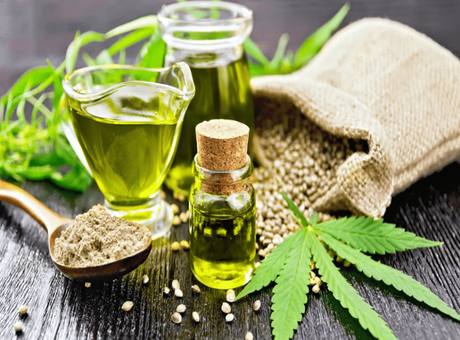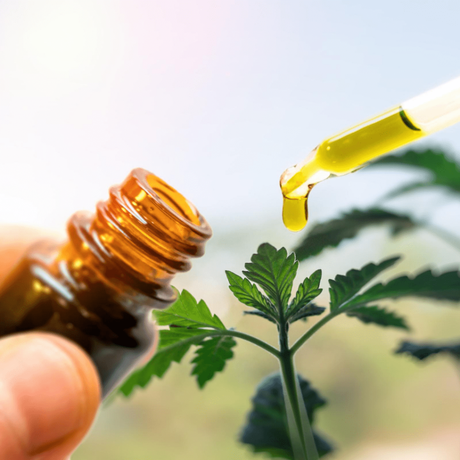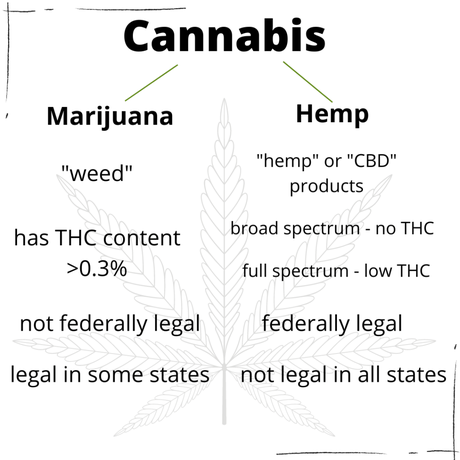
No matter whether you are new to the world of cannabis or a seasoned user, the hundreds of terms surrounding the cannabis plant and its derivatives can be overwhelming. One of the major things that many people wonder about is the difference between CBD and hemp. What is full-spectrum CBD oil? Do I need a CBD salve or topical? These are all very normal questions, and with a few things in mind, you can easily discern between these products. Once you know the difference between CBD vs hemp, all the other terminology becomes much easier to digest!
What is hemp?
If you are like most people, you may be more familiar with hemp vs CBD, or have at least seen it more often in your daily life. Hemp is another word for the cannabis plant. There is a difference between marijuana and hemp, and this is an important distinction to make. Hemp does not contain a psychoactive amount of the THC molecule, and depending on the plant varietal, may contain 0% THC. Hemp, specifically hemp seeds, are used in a variety of food and health supplements and have been available on the market legally for quite some time.

Did you know that George Washington grew hemp? Hemp has been used as a textile and food substance for thousands of years. The fibers of the hemp plant are amazingly strong and have a history of use in building materials, ropes, and textiles. Hemp’s history of medical use also stretches back thousands of years. In more modern times, plants are specifically bred and grown to increase CBD concentration and therefore, the plant’s beneficial properties for internal use.
What is full-spectrum CBD oil?

CBD specifically refers to cannabidiol, a molecule found within the hemp plants. CBD is similar to THC in the way that it provides potential health benefits and binds to your body’s natural endocannabinoid receptors. However, CBD does not produce psychoactive or intoxicating effects as THC does. The US government outlawed cannabis and marijuana in the 1930s, and the substance remained completely illegal until the 1990s medical marijuana laws. In 2018, the US government decriminalized industrial hemp with a THC content of less than 0.3%.
Full Spectrum CBD Oil
The CBD molecule on its own has a host of amazing properties and potential health benefits. However, thanks to something called the entourage effect, the beneficial properties of CBD are boosted when combined with even minute amounts of THC. Full Spectrum CBD Oil, unlike Full spectrum Hemp oil, will contain a small, legal amount of THC and is legal to use in most of the United States. CBD Oil that is full-spectrum has:
1. Less than 0.3%
2. Contains terpenes
3. Binds naturally with your body
4. Can be used internally or externally
There are many different products that use hemp vs CBD, and which products are best for you depends on your comfort level with THC, your age, and your intended desired effects. Full-spectrum CBD oil can be taken internally or sublingually in the form of pure oil or capsules. CBD salve and other topicals are great for external pain issues.
So, CBD vs hemp really depends on your individual needs and preferences. The variety of available products ensures that you can find something for you, as long as you know the terminology.

